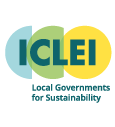At the local government level, financial resources are predominantly obtained through intergovernmental transfer payments, grants, subsidies and taxes. Many of which are unsustainable over the long term and stressed under the current global COVID-19 pandemic (OECD, 2020).
The Dasgupta Review, Paulson Report and OECD’s Overview of Global Biodiversity Finance, illustrate that spending on biodiversity provides a very high social return on investment. While increased biodiversity resource mobilization is necessary to bend the curve on biodiversity loss, it is also likely to generate net economic benefits for present and future generations. This session aims to explore how cities can contribute to the paradigm shifts needed to devolve and scale up financing for nature at the local level.
Session outcomes
- Showcasing how cities can leverage innovative approaches to mobilize resources for implementing NBS, and partner with the private sector and financial institutions to advance innovative finance solutions and investment for up-scaling NBS
- Catalyze knowledge sharing about innovative approaches and solutions, and factors that drive and enable private sector investment in biodiversity and nature-based solutions, and collaboration between the public and private sector;
- Identify social, financial and environmental risks and consequences of inaction for local governments and urban communities.
Speakers
- Peter Damgaard Jensen, Co-Chair, Climate Investment Coalition; Chair, AIP Management, Denmark
- Cheryl Jones-Fur, Deputy Mayor Växjö Municipality, Sweden
- Roby Biwer, European Committee of the Regions
- Ernest Arthur, Mayor, Cape Coast Metropolitan Assembly, Ghana


